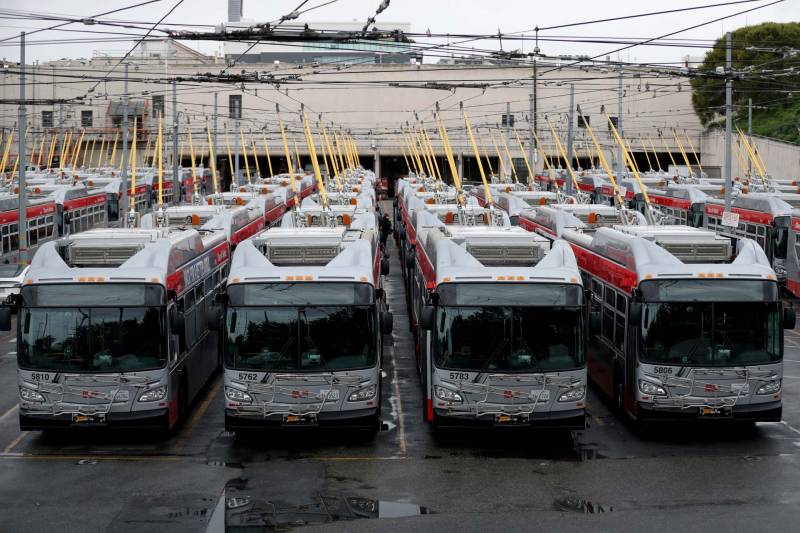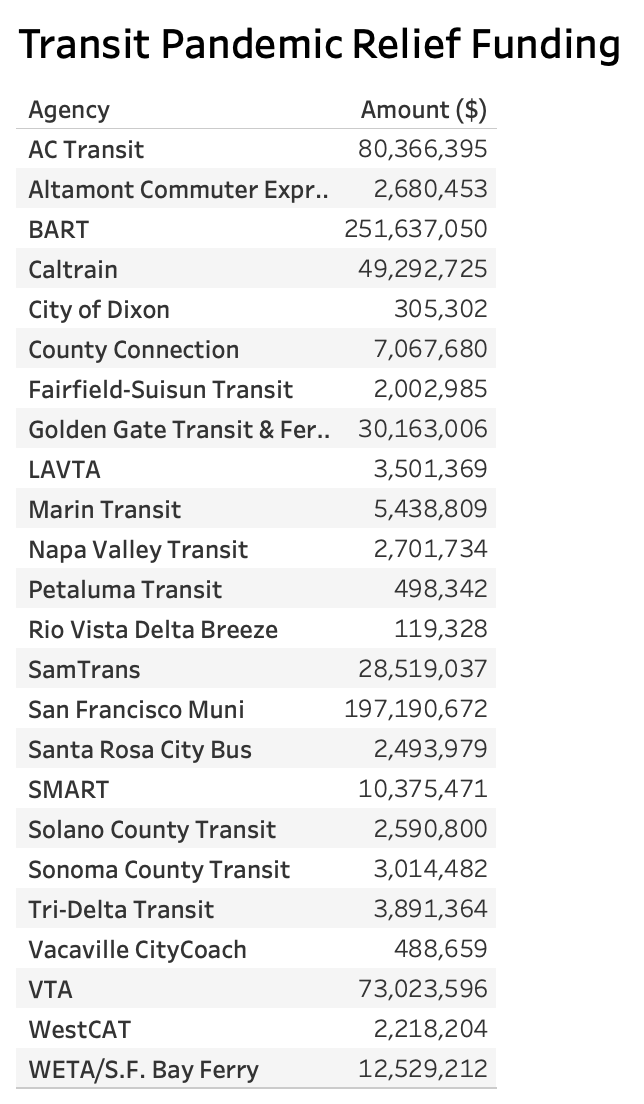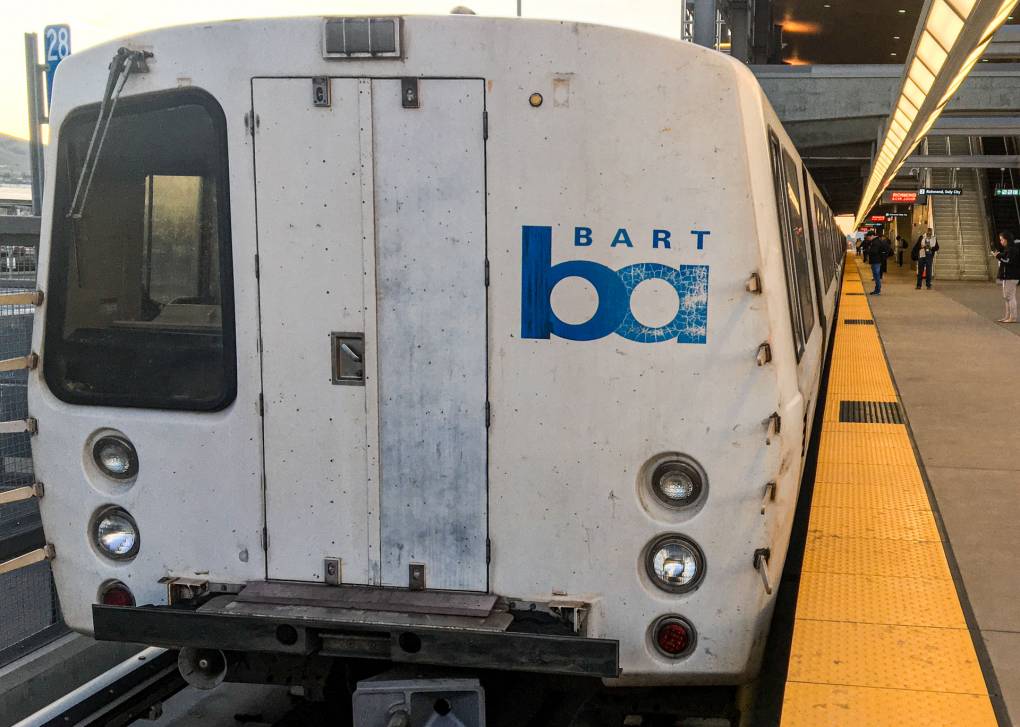Bay Area transit operators have hammered out a proposal to distribute newly available pandemic relief funding, cash intended to help the agencies survive a historic loss of ridership triggered by the coronavirus outbreak and to aid in rebuilding service once the immediate crisis is past.
Under a plan unveiled late Thursday, 24 agencies will split the funds to help cover operating losses projected at hundreds of millions of dollars.
Under a blueprint that will be considered next week by the 21-member Metropolitan Transportation Commission, BART would get $252 million to help pay for ongoing operations. San Francisco's Muni is in line for $197 million, the East Bay's AC Transit would receive $80 million, the Santa Clara Valley Transportation Authority (VTA) $73 million and Caltrain $49 million.
The funds come from a $25 billion aid package for transit systems nationwide, approved as part of the federal government's $2.2 trillion Coronavirus Aid, Relief and Economic Security (CARES) Act.
Bay Area agencies, which like others around the country have seen ridership and revenue declines of 90% or more since the coronavirus outbreak prompted widespread shelter-at-home orders last month, are in line for a total of $1.3 billion. The first allocation announced Thursday represents about 60% of the available funds; the MTC says the remaining $520 million will be distributed later this year.
MTC spokesman Randy Rentschler said the funds were distributed proportionally based on the losses each agency has sustained so far.
"We used a series of formulas that sought to mirror what the shortfall is for the operators based on what we know so far," Rentschler said.
Those shortfalls are steep, even as one agency after another slashes service to contain costs.
BART, which has suspended service after 9 p.m. and has cut the number of trains it runs the rest of the day in half, said earlier this month it expects a $173.5 million gap between its expected and actual revenue through June 30. Agency management will offer a revised estimate next week.
San Francisco's Muni, which has suspended its Metro subway, streetcar and cable-car service and now runs buses on just 17 of its normal 90 routes, is expected to suffer a revenue decline of between $180 million and $260 million through June 30, according to the California Transit Association.


